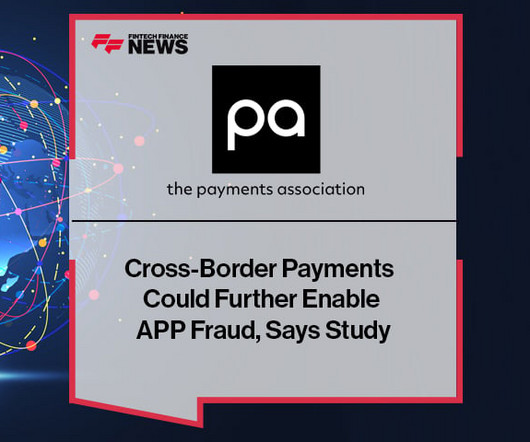Cross-Border Payments Could Further Enable APP Fraud, Says Payments Association Study
Fintech Finance
NOVEMBER 13, 2024
Authorised Push Payment (APP) fraud continues to be one of the most pressing concerns for financial services, the payment industry, law enforcement and the general public – and new developments in cross-border payments may be making it easier.












Let's personalize your content